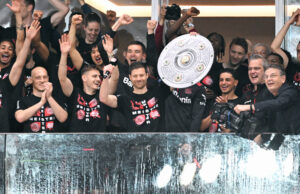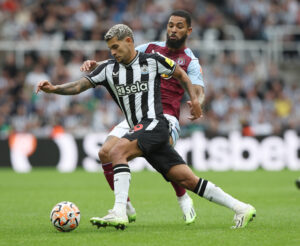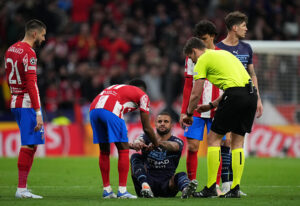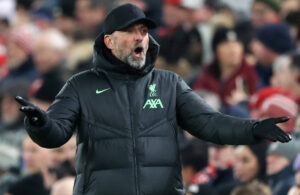It was a PR disaster from start to finish. The proposed European Super League (ESL), first introduced to the world in bizarre joint statements from the 12 founding member clubs, is unofficially dead in the water.
After one of the most chaotic and febrile weeks in football’s storied history, we have arrived at the point where the European Super League proposals lie in tatters. But how did we arrive at this moment, and just why did the ESL fail so spectacularly at the first hurdle?
Why the European Super League Failed
The First Mistake
It would be naive to think discussions around a European Super League have not been happening for some considerable time. It was also fairly obvious that some form of criticism would swiftly follow the announcement of a proposed competition of this type. Given that context, an immediate, positive message had to be delivered early to counter the negativity.
Instead, after the first rumours began to surface on Thursday, with the first reports being published on Sunday lunchtime, and the official announcement from the Super League camp not arriving until 23:11 BST later that day, Real Madrid president and proposed Super League chairman Florentino Perez gave an interview with a Spanish media outlet in the early hours.
There were no more statements or interviews given by executives of the 12 clubs before the project collapsing on Tuesday night. Instead, the vacuum was filled with negativity – from fans, media, players and managers. Even Prime Ministers and Presidents condemned it, as did Prince William. There was no attempt other than from Perez to explain what the 12 clubs viewed as the proposed league as such a positive force for football.
Fertile Grounds for a Rebellion
Before the European Super League proposals had even been drafted, many club owners around Europe were already skating on thin ice. This was especially true in the UK, where the Glazers at Manchester United and Stan Kroenke’s ownership of Arsenal had been under the microscope for some time.
There is a line of thinking that suggests that more fans would have been on board with a Super League if they trusted their owners a bit more – and their intentions. However, with a general distrust of billionaire owners sweeping across European football right now, an apoplectic reaction was always likely from fans.
Even Liverpool’s John W. Henry felt the collective rage of Liverpool’s fan base, despite the club’s recent on-pitch success. This is because it felt like such a betrayal of Liverpool’s values and traditions as a club, with many fans still fundamentally distrusting Henry and the entire FSG ownership group. A day of reckoning, where fans would rebel against the pervasive financialisation of football, was always likely to happen eventually – the Super League proposals may have just fast-tracked that somewhat.
Will European Super League Collapse Change Football as We Know It?
In the UK and Spain, there have already been numerous calls to introduce German football’s so-called 50+1 rule. Simply put, this rule hands fans a majority stake in the club, meaning that owners never get to wield more power than is necessary or override the collective will of the fan base.
For such a rule to be implemented in the UK, government legislation would likely be needed, as it would profoundly impact the Premier League and its status as the richest league in football. While the dust will invariably settle at some point in the coming weeks and months, some owners may never earn back the respect of the fans, meaning that radical change and upheaval may indeed be possible.
Fan Power is Well and Truly Back
It’s most certainly true that the decision of clubs to withdraw from the ESL was fuelled by more than just fan power. For starters, pressure from UEFA and respective domestic leagues, as well as condemnation from many different footballers were all also big factors in Chelsea and Manchester City deciding to buckle.
However, this also doesn’t mean that the fans didn’t have an impact. The reality is that fan power is alive and well, as the scale of the protests outside Chelsea’s game with Brighton & Hove Albiondemonstrate best. The Blues’ decision to withdraw from the ESL was made as that protest was still taking place, which very much tells its own story. Follow all the latest ESL developments and sports news right here.
Whether fans can push for change in other areas of football remains to be seen, as the power still resides with the owners and the sport’s governing bodies. But what the various protests and social media responses did show the footballing establishment is that fans won’t go quietly without a fight.
The European Super League may return one day under a different guise, only now the owners and organisers know the scale of opposition they will face. Beforehand, it didn’t even appear to be a consideration. With the ability to vote with their wallets, and hurt the powerful in a financial sense, fans may now realise that they have far more power than they previously thought.
Summary
Overall, as we have seen, the European Super League failed for several different reasons. Chief among those, however, is the re-emergence of a powerful new fan culture, which has led to several different protest movements that all have the healthiness of the game at their very heart. For a moment in time, all football fans came together to unite against one common enemy, something which ended up making a huge difference. What happens next is anyone’s guess, but emboldened by the victory, we may be entering a new age of fan interaction.
By contrast, those running football must now go back to the drawing board; in order to try and realise why the ESL proposal failed, and to fully digest the nature of the backlash that it received. This could very easily provide organisers with a roadmap of things to avoid if they try to introduce a similar plan in the future, but something tells me that fans, the media, and players alike won’t be fooled the second time around either.
On this occasion, David got the better of Goliath, but we suspect this won’t be the last time these two forces fight it out for the soul of the beautiful game.
Main Photo






